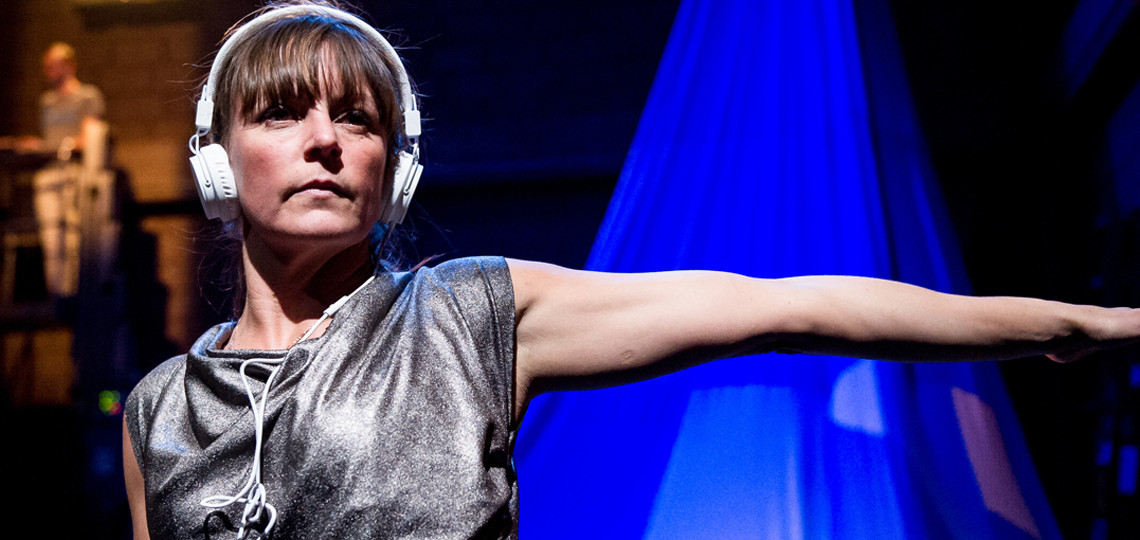300 words on Realness: …Too Freedom…
300 words on Realness: …Too Freedom…
by Lydia Mokdessi
Published on: January 11, 2014
Adrienne Truscott’s …Too Freedom… is not the same dance in American Realness 2014 as it was in December 2012 at The Kitchen. Neal Medlyn is still funny and unsettling in his spastic episode in the stage lift and elegant in his minimal rendering of Truscott’s simple core phrase. Gillian Walsh and Laura Sheedy are still composed and a little menacing while leading latecomers to their seats and civilly dismantling a roast chicken. Adrienne is dogged, bordering on manic in her companionless rehearsing. Mickey Mahar is completely engrossing, floppy and elastic and totally comfortable with his weirdness. This time, though, the work on the whole feels a little more offhand and a little less earnest, which is an unexpected and welcome shift.
Perhaps everyone in the audience had seen the piece last season — the response felt more in-on-the-joke, less contemplative or admiring. People openly laughed at Neal’s screaming fit (I still found it horrifying, but I can’t stand watching people in even fake-pain), when Adrienne wiggled too close to the front row, and during her concluding Spanish conversation with the jornaleros (day laborers). At The Kitchen, there was a sense of gratitude for them — maybe they got their own bow or were held apart in some other way. Here they are just part of the cast, which fits well. The demands of the performers are undeniably linked to those of the jornaleros (job stability, physical concerns, low wages), but the question of utility hangs in the air. Presumably, in their day to day lives, the men are reliably compensated for the production of material structures; the value of their labor is explicit. Of course, the value of the performers’ labor depends on who you’re asking.
The more complex question is about spectatorship (“can you not stare at me for a long time?” Gillian asks). The idea that being watched while working is an inherently vulnerable position is especially potent when the worker’s job is to be watched. …Too Freedom… is function over form; dancing is a job like any other job.

